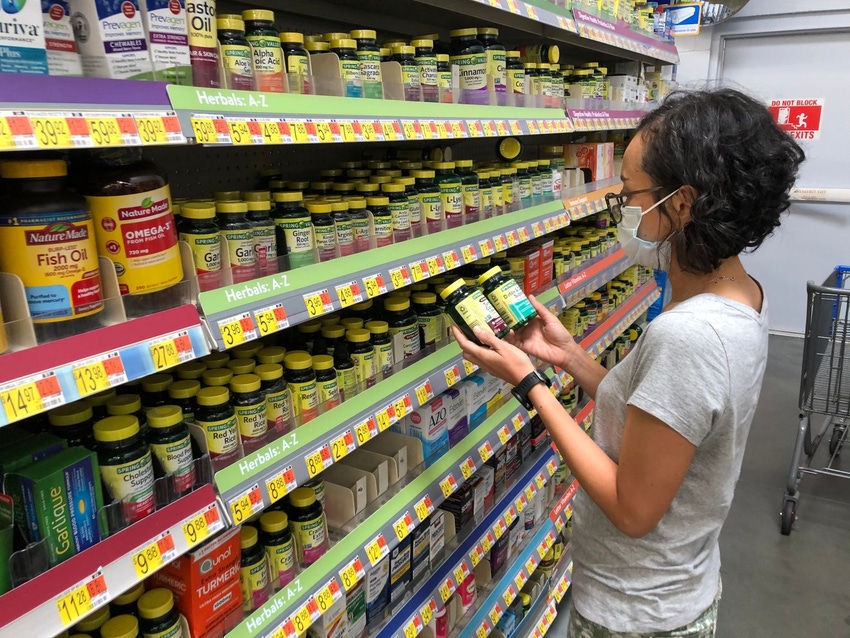Supplement manufacturer NOW is offering a checklist for consumers to use to avoid purchasing poor quality products.

Supplement manufacturer NOW is offering consumers help in finding quality options in a market that its own research has shown to be rife with low quality and inefficacious products.
NOW has conducted more than a dozen rounds of testing of various categories of supplements marketed under lesser-known brand names on Amazon and on Walmart.com. The initiative has revealed that many of these products are understrength with a distressingly high percentage of them containing almost none of the active ingredients listed on the labels.
NOW’s testing initiative has been unique in that the company has been willing to name the brands it has tested. NOW has avoided buying and testing products from well-known brands because it said it believes most of those companies can be relied upon to meet quality standards. Rather, it has focused its efforts on areas where the problems are most likely to be found.
At least some consumers are buying pointless products
However, few consumers will be well enough informed or motivated enough to find NOW’s specific results. Surveys conducted by the Council for Responsible Nutrition have revealed almost three quarters of respondents use supplements at least occasionally and more than half are frequent users. This means that large numbers of consumers are buying some of the useless products that are for sale online.
The problem of how to identify a quality product has been one that has plagued the industry for decades. NOW’s own consumer research has revealed nearly all respondents (a combined 98%) cited concerns about supplement effectiveness, safety and quality as barriers to purchase.
“It’s so important for people to do their research on brands before purchasing,” said DJ Blatner, NOW Wellness Expert and Registered Dietitian Nutritionist (RDN) in a news release.
“Despite what some say about the supplement industry being unregulated, there are federal regulations and laws in place that supplement manufacturers must follow to manufacture safe products. Trusted brands meet (and often exceed) these requirements and offer full transparency to their consumers. There are several strategies shoppers can use to find trusted companies and boost their confidence in the products they purchase,” Blatner added.
Blatner recommended consumers follow several steps to ensure they are purchasing an efficacious product.
Tips for consumers purchasing supplements
Among the things to look for:
Avoid products that make outlandish claims. Most supplement ingredients work slowly and gently in the body. Few claims of immediate action or huge effects (such as losing large amounts of weight in a short period of time) can be scientifically substantiated.
Search for companies that are willing to share detailed information about their quality control procedures.
Keep an eye out for supplements that list branded ingredients on the labels. These are higher quality ingredients that have scientific backing for claims, and whose manufacturers defend their trademarks. This means the cheap, knock-off brands rarely run the risk of trying to violate those trademarks on their ingredient lists.
Buy supplements direct from trusted manufacturer websites where possible. Few of the brands that NOW has exposed in its testing even have their own storefronts. At least some of those that do have their own storefronts make unsubstantiated statements about their commitments to such issues as product quality and sustainability practices. Blatner suggested consumers vet those statements carefully, to see which ones are substantiated with third-party citations.
Finally, Blatner suggested consumers do some research on the endorsements from “experts” that might be cited on company’s website. Do those individuals have the kind of academic or professional credentials that would back up what they say about a company’s products?
Looking for logos could lead consumers astray
One other suggestion Blatner made is for consumers to look for third party seals of quality and GMP (good manufacturing practices) compliance, such Informed Sport and USDA Organic. While this might be a useful idea in the abstract, the challenge is the market is flooded with dozens of bogus or potentially misleading seals.
For example, “GMP Certified” and “FDA Approved” logos can be found on the labels of many off-brand products. FDA does not “approve” the effectiveness or safety of dietary supplement products prior to their sale in U.S. commerce, and while many firms may obtain a “GMP certified” seal from a third-party auditor, FDA investigators in an independent government audit may determine the firm has run afoul of federal manufacturing rules.
Without a detailed list of which logos are real and which are fake, consumers could easily be misled.
Read more about:
Supplement scienceAbout the Author(s)
You May Also Like






.png?width=800&auto=webp&quality=80&disable=upscale)